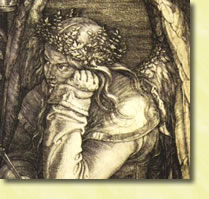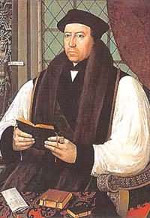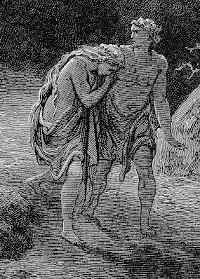 This is the first in several essays responding to a review of my book Icons of Christ by the Rev. Mark Perkins.
This is the first in several essays responding to a review of my book Icons of Christ by the Rev. Mark Perkins.
The Problem of Rhetoric
I have noticed in past reviews of my book Icons of Christ a tendency to substitute rhetoric for careful reading and reasoned response. The result is a failure to actually read and fairly represent my argument. Even when one disagrees with a position, one has a responsibility to present the argument in such a way that the opponent would recognize this as his or her position. I have always tried to follow this approach in my writing. My dissertation was on the theology of Jacobus Arminius, and I spent the first several chapters in trying to honestly and fairly summarize the positions of late medieval scholastics, Luther, Calvin, and the Reformed Scholastics with whom Arminius was in disagreement. I have just published a book on the doctrine of the Atonement, in which I summarize the atonement theologies of theologians from Irenaeus and Athanasius to the modern period. In each case, I try to make every effort to accurately represent the positions of even those theologians with whom I am not sympathetic.
In writing my book on women’s ordination, I took the same approach. My book is unique in addressing both Protestant and Catholic objections to women’s ordination, and I intentionally avoided sarcasm or snarkiness or misrepresentation in summarizing positions with which I disagreed. I have not yet come across any criticisms of my book that suggested that I had incorrectly or inaccurately summarized the views of either Protestant complementarians or Catholic sacramentalists. Unfortunately, those who have reviewed the book negatively have not returned the favor.
Mark Perkins’ review of Icons of Christ initially claims to be an exception. Perkins purports at the beginning to “thoughtfully engage” with what I’d written. He speaks of having taking a course under me at Trinity School for Ministry where he appreciated my “deft hand in navigating contentious waters with a theologically diverse set of students,” and he compliments me by saying that he initially believed that Icons of Christ “would offer the best possible argument for women’s ordination.”
Despite the initial compliments, however, Perkins’ review follows the usual pattern. More specifically, when Perkins finds himself in general agreement with something I write, he can summarize my views somewhat fairly. For example, as an Anglo-Catholic, Perkins is not generally in agreement with Wayne Grudem’s Protestant Complementarian approach to the interpretation of Scripture. Accordingly, Perkins summarizes my views in a sympathetic and more or less accurate manner in those cases where he thinks I am correct and Grudem mistaken.
To the contrary, Perkins’s own case against WO is Anglo-Catholic, and in discussing those parts of my book that address Catholic objections to the ordination of women, Perkins regularly presents my arguments in a condensed fashion, reduces this summary to a caricature of my actual position, and then dismisses the caricature. In these parts of his review, Perkins regularly engages in the only-too-frequent pattern I have noticed among complementarian opponents of WO, of substituting snark and sarcasm for actual argument.
















